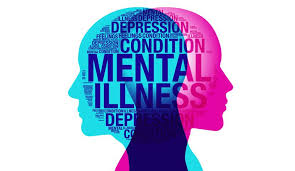
How Your Gut Affects Your Mental Health
A recent study from UCLA’s Goodman-Luskin Microbiome Center explored the connection between gut health and mental resilience. Researchers surveyed 116 individuals about their ability to handle adversity and collected stool samples from each participant. A few days later, the participants underwent fMRI brain scans to examine brain activity. The results revealed that those with higher resilience had healthier gut bacteria and a stronger gut barrier.
Positive Impact of Gut Health on the Brain
The study aimed to investigate the positive effects of a healthy gut on the brain, differing from previous research that focused on negative impacts. The findings suggest a complex relationship between the gut and brain, indicating that good gut health can enhance psychological, emotional, and cognitive functions.
Measuring Resilience
Participants' resilience was assessed using the Connor–Davidson Resilience Scale (CDRisc), which measures resilience across five areas: personal competence, tolerance of stress, positive acceptance of change, control, and spiritual influences. The average CDRisc score for U.S. residents is 80.7.
Stress and Gut Health
The gut and brain are connected in several ways that influence each other. Previous research has shown that the gut microbiome can affect anxiety levels. This study adds a new dimension by linking gut health to resilience. Dr. David Merrill, a geriatric psychiatrist, explained that a healthy gut microbiome maintains the integrity of the gut lining and reduces inflammation, which is associated with better brain function and emotional stability.
The Vagus Nerve and Gut-Brain Connection
The vagus nerve directly connects the gut and brain, allowing the gut to send short-chain fatty acids (SCFAs) produced from dietary fiber fermentation to the brain. These SCFAs help maintain gut health and support brain function and mood regulation by promoting the production of beneficial neurotransmitters and reducing brain inflammation. Notably, about 90% of serotonin and 50% of dopamine are produced in the gut.
Maintaining a Healthy Gut Microbiome
Michelle Routhenstein, a preventive cardiology dietitian, recommends consuming a diverse range of fiber-rich foods such as fruits, vegetables, beans, legumes, and whole grains to support a healthy gut microbiome. These foods nourish the body and help manage stress by providing essential nutrients. Additionally, incorporating probiotic and prebiotic-rich foods, found in vegetables like onions, garlic, leeks, jicama, and asparagus, can feed beneficial gut bacteria.
The Importance of Sleep and Physical Activity
Maintaining a consistent and sufficient sleep routine is crucial for gut and mental health, as disrupted sleep is linked to higher stress levels. Physical activity also supports gut health and contributes to overall well-being.
Ahealthy gut plays a vital role in maintaining mental health by reducing inflammation, promoting beneficial neurotransmitters, and supporting brain function and mood regulation. Eating a balanced diet, getting enough sleep, and staying physically active are key strategies for maintaining a healthy gut microbiome and improving mental resilience.